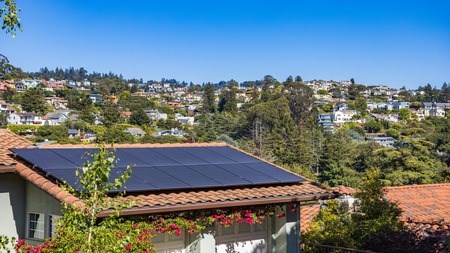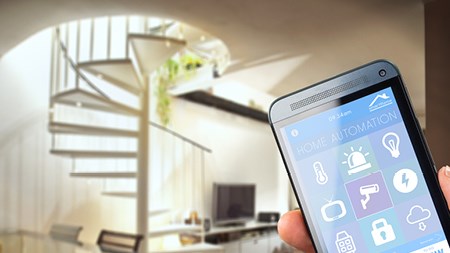Heat pumps and solar water heaters are both used in homes across the country for heating water and reducing the use of electricity. Understanding the two technologies will enable you to decide which option best suits your needs.
Solar water heaters
Solar water heaters use radiation from the sun to generate heat. The amount of energy a system can collect depends on the area of the roof-mounted solar panels and the level of radiation on the day. Solar panel performance calculations also assume that the solar collector panels are mounted solar north with the optimal inclination. Variances in the inclination and facing of the solar collector panels will decrease the system’s output.
A 3m2 solar panel connected to a 150-litre geyser could provide 150 litres of water at 60°C at the end of a warm sunny day. However, during days with less sunshine, the 150 litres of water may only heat up to 35°C, and a 1.5 m2 solar panel would provide half the amount of energy. In both instances, you would need an alternative heat source to heat the water to 60°C, such as electricity or gas.
If you have 150 litres of 60°C water at the end of a warm sunny day and use 75 litres in the evening, the remaining water will probably be cold in the morning. Therefore, if you would like a hot morning shower, you would need to heat the water to the correct temperature.
Area-specific
According to ITS Solar, a high-efficiency, properly sized solar system - twice the geyser size compared to a standard electrical heating installation - installed in Johannesburg could provide almost all the hot water required. This is provided that you are willing to use hot water only in the evening or only in the morning.
However, if you install this same system in Cape Town, you would typically not be able to get more than a 60% saving. This is because Gauteng has consistent solar radiation levels all year round, whereas Cape Town has very high levels of solar radiation during summer with far lower levels in winter.
ITS Solar says that most solar systems in South Africa are undersized and will provide much less than a 50% saving on water heating bills. Many houses where families of three or more are living just have a 2m2 solar panel on the roof connected to a 150-litre geyser. These installations cannot possibly provide enough hot water to enable significant energy savings.
Many homeowners also lose sight of the fact that if a high-efficiency, properly sized solar water heater saves 50% on your water heating bill, this will not result in a 50% saving on your total electrical bill. This is because the geyser is not the only electrical appliance in your home.
Heat pumps
Domestic heat pumps use a small amount of electricity to extract energy from the surrounding air. A heat pump also uses solar energy, but indirectly, so it can work day and night, winter and summer.
The coefficient of performance (COP) of a heat pump is defined as the relationship between the power – measured in kilowatts (kW) - drawn out of the heat pump as cooling or heat, and the power supplied to the compressor. A COP value of 4 means that the heat pump produces four times as much thermal energy as what it uses electrically. This results in a 75% saving on the water heating bill.
The COP of a heat pump depends on ambient and water temperatures. In a domestic hot water system using a high-efficiency heat pump, a more realistic annual COP value is 3, which will give you a saving of 66% on your water heating bill.
A high-efficiency heat pump takes about 90 minutes to reheat a 150-litre geyser, which is installed in most homes in South Africa. This allows you to always have hot water no matter when or how much water you use. You can expect your water heating bill to be only 33% of the cost of using Eskom electricity.
Conclusion
According to ITS Solar, a heat pump provides a much more signifcant long-term saving than a solar system and should pay for itself in just over three years.
A heat pump’s life expectancy approximately ten years. Solar water heaters are often stated to have a life expectancy of 20 years. However, only the solar panels are expected to last that long. Many solar water heating systems use a controller and a pump, reducing the system life expectancy to around ten years.
A solar system can provide bigger savings than a heat pump provided that the system is oversized and water usage patterns are adjusted.
“Typically, you need twice the volume of hot water than what you would for a normal electrical geyser or a heat pump system. In winter rainfall areas like the Western Cape, however, the winter solar radiation is much lower than in summer. Even if your solar system was sized for 100% of your solar usage in summer, you would have only about half the thermal output you need in winter, and the electrical element would need to do the rest. People also use more hot water in winter, so a heat pump would almost always be a better solution in areas like Cape Town.”
ITS Solar says that thermosiphon solar heating systems - with no circulation pump and differential temperature pump controller - should be the life expectancy ‘winners’ if you ignore the hot water storage tank needed in all systems.
Both solar systems and heat pumps need to be serviced annually to ensure optimal performance. Servicing entails cleaning the system and making sure everything is working correctly.




